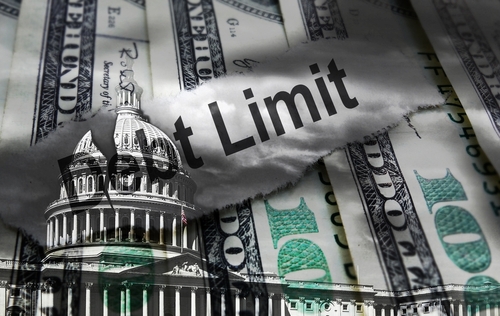Racing against a looming June 5 deadline, negotiators for President Joe Biden and House Speaker Kevin McCarthy worked late into Friday night in order to announce an agreement in principle on Saturday morning to raise the debt ceiling.
 The news came just over one week before the earliest so-called X date, which Treasury Secretary Janet Yellen said is the date the United States would default on its debt.
The news came just over one week before the earliest so-called X date, which Treasury Secretary Janet Yellen said is the date the United States would default on its debt.
Such an event could have far-reaching implications for the nation’s retirement system, including a possible suspension of public retirement benefits and steep losses in private retirement accounts resulting from market volatility.
Indeed, a previous debt limit standoff in 2011 led to a 17% decline in the S&P 500 index, according to Washington-based think tank Third Way, citing a Treasury report.
It added that a report from Moody’s last year was even more worrisome, forecasting that a short-term debt default could lead to a 27% drop, resulting in an estimated $20,000 loss of savings for the typical worker nearing retirement.
Neither side appeared happy with the deal, as party leaders clamored to solidify support. Specifics included suspending the debt limit through January 2025 in exchange for federal spending limits and changes to social welfare programs.
Spending caps and student loan forgiveness appeared to benefit Democrats, while recovery of unspent COVID funds and a reduction in IRS funding appeared to help Republicans. Two other high-profile issues, changes to the Supplemental Nutrition Assistance Program (SNAP) and streamlining energy project permits, were essentially a draw.
“All in all, the Fiscal Responsibility Act is truly worthy of the American people,” McCarthy wrote in a Wall Street Journal op-ed on Sunday. “It does what is responsible for our children, what is possible in divided government, and what is required by our principles and promises.”
“Speaker McCarthy and I reached a bipartisan budget agreement that will prevent the worst possible crisis—a default for the first time in our nation’s history,” President Biden tweeted. “This deal is good news for the American people. I strongly urge Congress to pass the agreement right away.”
More specifically, the agreement would do the following:
Spending Limits: Nondefense and defense discretionary spending would remain essentially flat for fiscal year 2024 and increase by 1% for 2025. In 2024, discretionary defense spending is capped at $868.35 billion, and nondefense spending is capped at $703.65 billion. The caps would increase to $895.21 billion and $710.69 billion, respectively, in 2025.
COVID Relief Funds: The agreement rescinds tens of billions in COVID relief funding, something Democrats argued would negatively impact vulnerable populations especially hard and hamper efforts to prepare for future pandemics.
IRS Funding Cuts: The deal cuts $1.4 billion from the $80 billion in IRS funding included in the Inflation Reduction Act. On an interesting side note, Politico reported that the administration also agreed to cut another $20 billion out of that pot of money, which is not part of the legislation, but rather “an informal agreement struck between President Joe Biden and House Speaker Kevin McCarthy.”
Student Loans: The Biden Administration would no longer be able to delay the resumption of student loan repayments which, according to Bloomberg, covered 43 million borrowers and $1.6 trillion in loans and came at a cost to the government of $5 billion per month, or approximately $200 billion in total. However, Republicans had hoped to use the debt ceiling as leverage to cancel Biden’s student loan forgiveness plan, something they could not do in the final plan.
Calling the full faith and credit of the United States Government “nothing to trifle with” and noting that the impasse is putting Americans’ hard-earned retirement savings at risk, American Retirement Association CEO Brian Graff said he was pleased a tentative agreement was reached, and hoped lawmakers would continue to work together to find a viable solution.

